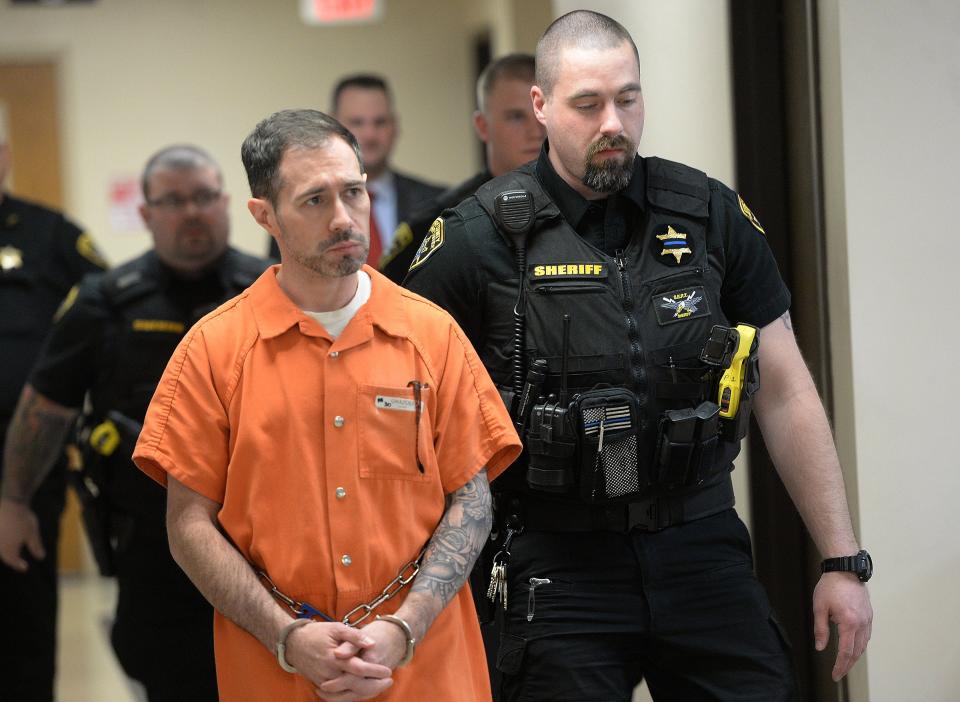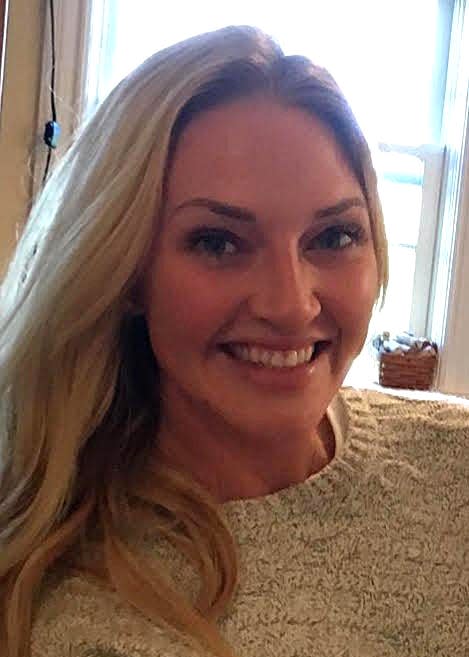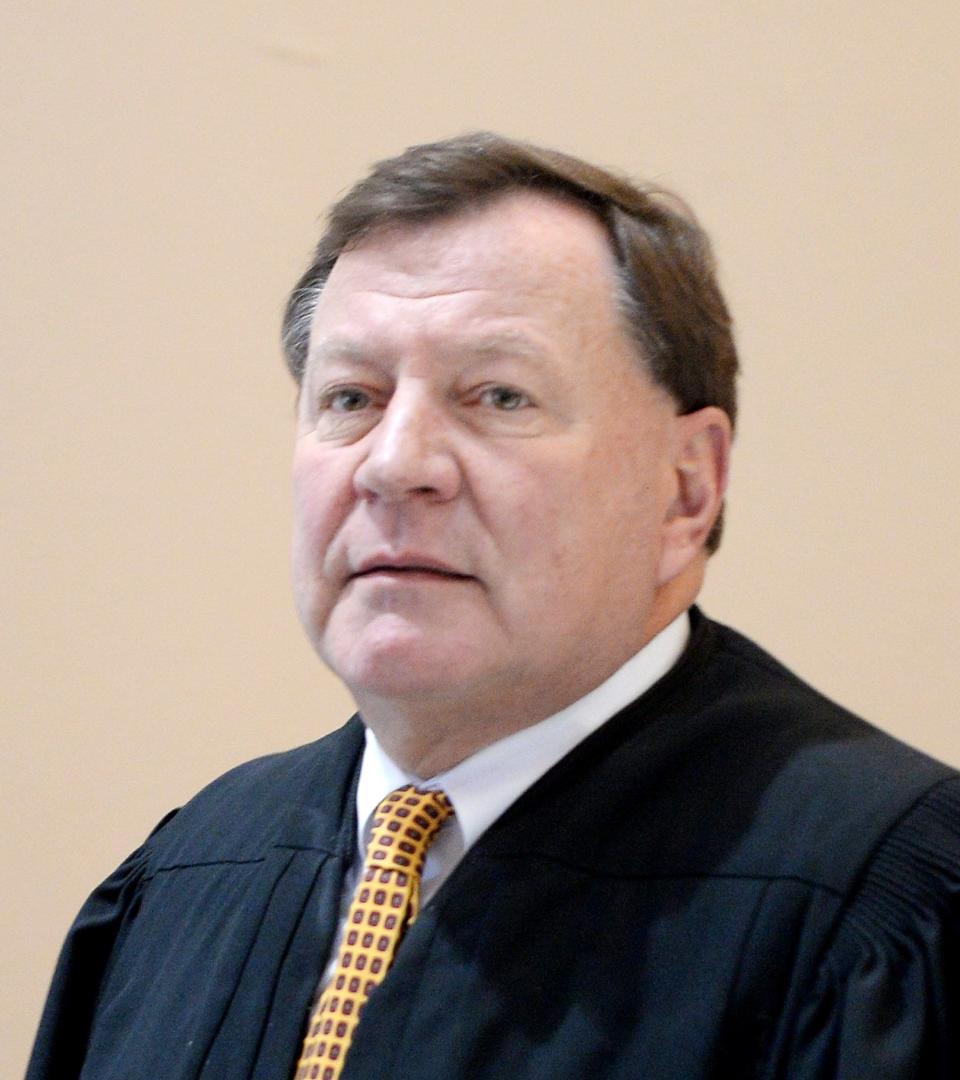Why did John Grazioli testify? Decision parsed as he returns to court over wife's murder
In his 20-year career as an investment adviser, John P. Grazioli made a lot of decisions about a lot of money. He estimated his clients' assets totaled $1.4 billion.
Grazioli boasted on his firm's website that he brought "a diverse and highly experienced background to Wealth Management" — a statement that exuded self-assurance.
In the courtroom, on trial for murdering his newlywed wife in their upscale Millcreek Township residence in March 2018, Grazioli made another decision.
He decided to testify.
How that decision complicated Grazioli's defense — and how it contributed to his first-degree murder conviction in February 2019 — were explored on Tuesday at an appeal hearing in Erie County Common Pleas Court.

Grazioli's decision to testify "changed the trajectory of the trial dramatically," his trial attorney, Brian Arrowsmith, testified at the hearing. As Grazioli underwent cross-examination, Arrowsmith said, "his testimony started to go off the rails."
Grazioli pursues another appeal over murder conviction
Grazioli, 50, lost the first appeals he filed after he was convicted and sentenced to a mandatory life term with no chance for parole for the fatal shooting of his wife of five months, Amanda Grazioli, 31, on March 8, 2018. John Grazioli is pursuing additional appeals under the state's Post-Conviction Relief Act.
The lengthy appeal process has extended a case whose unusual circumstances has led to national attention, including a feature on the Investigation Discovery network in November 2019.
Grazioli got his first two-court appointed appellate lawyers removed from his case after he claimed they were ineffective. He returned to the courtroom of Judge Daniel Brabender on Tuesday with a new court-appointed appellate lawyer, Jessica Fiscus, an assistant public defender.
Fiscus argued that Grazioli should get a new trial because Arrowsmith, who was privately retained, was ineffective. An assistant district attorney, Michael Burns, is contending that Arrowsmith was effective, and that many issues Grazioli is raising can be traced to his decision to testify.
Brabender presided over Grazioli's trial and said he will rule later on the appeal. Grazioli could appeal Brabender's decision to state Superior Court.
Grazioli's lawyer recounts plans for trial
Conversations between an attorney and a client are private under the law, though the confidentiality is waived if a defendant claims the attorney was ineffective. The waiver allowed Arrowsmith to be a witness on Tuesday.
His testimony focused on trial strategy.

After Fiscus called him to the stand, Arrowsmith recounted how Grazioli never denied that he shot his wife in the back of the head at point-blank range in the bedroom of their house in the Whispering Woods subdivision.
Arrowsmith reviewed the evidence. It included Grazioli's admissions to police; the gunpowder residue found on his hands, in tests to which he consented: and how Grazioli, a former seminarian, after the shooting fled in his Mercedes-Benz SUV to St. Peter Cathedral in Erie, where he met with a Catholic priest who said Grazioli told him, in regular conversation, that Grazioli had killed his wife.
"A very strong case," Arrowsmith testified.
Arrowsmith testified he built the defense around a "diminished capacity" theory.
He argued Grazioli and his wife had used cocaine, marijuana and alcohol at the time and that John Grazioli was so under their influence that he could not have formed the intent to kill — the key element for first-degree murder, a premeditated homicide. Toxicology evidence showed his wife had recently used marijuana, cocaine and alcohol.

Arrowsmith said he decided to argue that Grazioli's diminished mental capacity made him guilty of third-degree murder, an unlawful killing with malice, a conviction for which carries up to 40 years.
"That was the best route," Arrowsmith testified.
Grazioli testifies, and the defense shifts
Arrowsmith said he had to "pivot" when Grazioli testified and said the shooting was an accident. When Grazioli was cross-examined, Arrowsmith said, the prosecution was able to question him about his troubled marital relationship, including evidence that he solicited an extramarital affair on a phone messaging app weeks before he killed his wife.
That is when the testimony started to "go off the rails," Arrowsmith testified.
He recounted how Grazioli opened the cross-examination by telling then-Chief Deputy District Attorney Erin Connelly, now a judge, that he would not answer her questions.
"It went south from there," Arrowsmith said.
Arrowsmith said he and Grazioli reviewed the advantages and drawbacks of Grazioli taking that stand. He said he knew Grazioli was likely to testify, and that he knew he would have to "walk the fence" between an accident defense and a diminished capacity defense if Grazioli testified.
Grazioli still decided to testify.
Arrowsmith alluded to Grazioli's strong personality — a trait that suited him as a finance professional — in how Grazioli made the choice.
"There was a lot of back and forth," Arrowsmith testified. "Getting to know him the way I did, Mr. Grazioli is going to make a decision, and whatever he decides to do, he is going to do. That is a bonus in some situations and not others."
Why did Grazioli decide to testify?
Arrowsmith said Grazioli told him: "I have to tell my story."
Contact Ed Palattella at epalattella@timesnews.com. Follow him on X @ETNpalattella.
This article originally appeared on Erie Times-News: John Grazioli fights ex-lawyer in return to court over wife's murder

